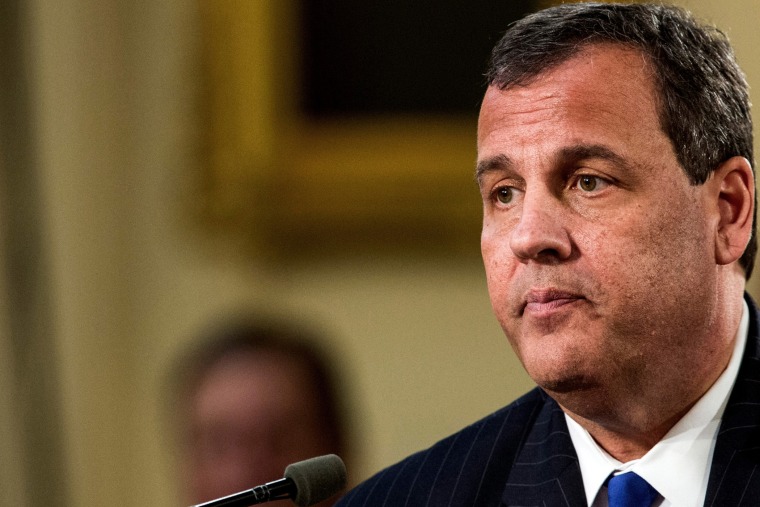As New Jersey Gov. Chris Christie (R) shifts his attention to the presidential campaign trail, he's losing something important:
the support of his own constituents.
New Jersey Gov. Chris Christie's approval ratings have hit an all-time low, according to a new poll. In a Rutgers University-Eagleton poll released on Friday, 53 percent of New Jersey voters view Christie unfavorably and just 37 percent hold a favorable view of the governor -- down 7 percentage points in two months.
The
same poll found the Republican governor's approval rating at 42%, down six points since December. Only 35% of New Jersey residents support the way in which Christie has handled education, while only 31% back his economic record.
This is, obviously, only one poll, but the Rutgers-Eagleton survey is
not the only one in recent weeks that shows Christie's support in the Garden State evaporating. The more the governor tells voters in Iowa and New Hampshire, "I want to do for the nation what I've done for New Jersey," the more the governor's constituents seem to say, "We don't know what you're talking about."
Just last week, a statewide poll in New Jersey found that in a hypothetical match-up against Hillary Clinton, Christie loses his home state
by 26 points. That's not a typo.
In the larger context, there's an interesting phenomenon unfolding that Alex Isenstadt called "
home-state haters."
In New Jersey, Gov. Chris Christie has seen his poll numbers plummet in recent months, even among the Republican voters who once consistently supported him. Florida Sen. Marco Rubio would lose his home state to Hillary Clinton if the election were held today. In Louisiana, a late-September poll showed more voters would rather have convicted felon and former Gov. Edwin Edwards back in office than Republican incumbent Bobby Jindal, who's now moving toward a national run. And last month, Democrat Martin O'Malley departed the Maryland governorship with record-low approval ratings. His replacement, Republican Larry Hogan, notched a stunning upset in the blue state by connecting his opponent to O'Malley. In years past, White House hopefuls -- particularly successful ones -- have traditionally been able to count on a groundswell support in their home states, where they were regarded as favorite sons. This time, not so much.
I remember several years ago seeing the
Washington Post's Aaron Blake
suggest home-state skepticism is routine for presidential hopefuls and that''s "true everywhere." I'm still not sure that's right.
As longtime readers may
recall, Illinois voters were awfully fond of Barack Obama in 2008; Texans were very enthusiastic about George W. Bush in 2000; and Arkansas strongly supported Bill Clinton in 1992. In fact, candidates rejected by their own constituents -- Mitt Romney in Massachusetts and Al Gore in Tennessee, for example -- tend not to do particularly well.
This is not to say Chris Christie's doomed because his own constituents have soured on him, but it's not unreasonable to argue it's an inauspicious sign.
